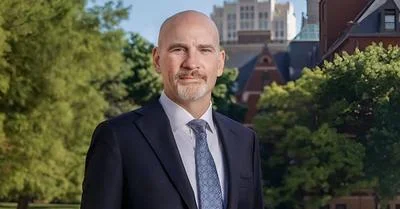Jeanette Hoffman, executive director of Patients Come First New Jersey | Patients Come First New Jersey
Jeanette Hoffman, executive director of Patients Come First New Jersey | Patients Come First New Jersey
Concerns are growing about the federal 340B drug pricing program, originally designed to make medications affordable for low-income patients, as evidence suggests some large health systems are using it to generate profits. The 340B program, aimed at providing safety-net hospitals with significantly discounted drugs, has grown into the second-largest federal prescription drug initiative, surpassing Medicare Parts B and D.
In an op-ed, Jeanette Hoffman, executive director of Patients Come First New Jersey, argues that a lack of transparency has allowed hospitals to profit from discounts meant to aid underserved communities. By reselling discounted drugs at higher prices, some hospitals are reportedly failing to pass on savings to low-income families and seniors. A study in the New England Journal of Medicine also found limited evidence that 340B revenue is being used to improve care or lower costs for vulnerable patients.
“While well-intentioned, the biggest flaw in the 340B program is that the discounts don’t have to go to the beneficiaries for which they are intended,” Hoffman wrote in her op-ed. “As a result, some hospitals are reselling and marking up discounted drugs to patients and insurance companies.”
A New York Times investigation recently scrutinized a nonprofit health system in Richmond, Virginia, which allegedly reduced services at the safety-net Richmond Community Hospital while redirecting 340B profits to wealthier medical centers. Interviews with former executives, doctors, and nurses suggest the system shifted funds from the safety-net hospital to wealthier facilities in affluent areas.
“[The hospital owner] was basically laundering money through this poor hospital to its wealthy outposts. It was all about profits,” said Dr. Lucas English, a former emergency department physician at Richmond Community, according to the op-ed.
Since 2010, the 340B program has expanded by 500%, now including more than 25,000 contract pharmacies and over 20 hospitals in New Jersey. Analysts attribute this growth to the lack of clear guidelines on how hospitals should use 340B discounts, sparking calls for reform to ensure the program’s benefits reach low-income patients directly.
In response to these accountability issues, some pharmaceutical companies have proposed replacing direct drug discounts with a rebate system, which advocates argue would better ensure that savings reach the intended recipients. Transparency measures like these are gaining support as policymakers and industry stakeholders discuss potential reforms.
Hoffman argues that price controls, like those in the Inflation Reduction Act, hinder drug market innovation and harm patients. She warns that such controls create economic uncertainty, reduce research funding, and lead to fewer new treatments, particularly in critical areas like cancer care. While politically attractive, Hoffman stresses that these policies ignore the economic principles of supply and demand, ultimately limiting patient access to necessary medications.
Kasia Mulligan, national spokesperson for Patients Come First, emphasizes the urgent need for a national discussion on access to innovative drugs and treatments, especially amid ongoing healthcare debates. She critiques the Inflation Reduction Act's drug price control measures, warning that they could hinder pharmaceutical innovation, particularly in cancer research. Mulligan highlights research showing significant reductions in new drug developments and cancer treatments due to these policies, while pharmaceutical companies have cut research budgets in response to the uncertainty caused by such price controls.
Jeanette Hoffman is a public affairs consultant and media spokesperson, specializing in strategic messaging, marketing, crisis communications, and public affairs campaigns. As president of a public affairs firm, she has more than 20 years of experience advising corporate and non-profit clients on issues advocacy, political campaigns, policy, and state government. she is also a regular media commentator on national television and radio, offering insights on politics and public policy.




 Alerts Sign-up
Alerts Sign-up